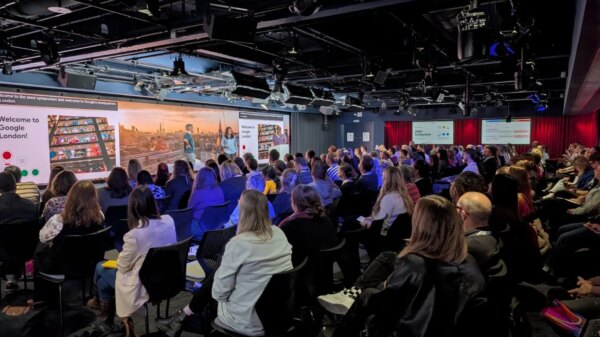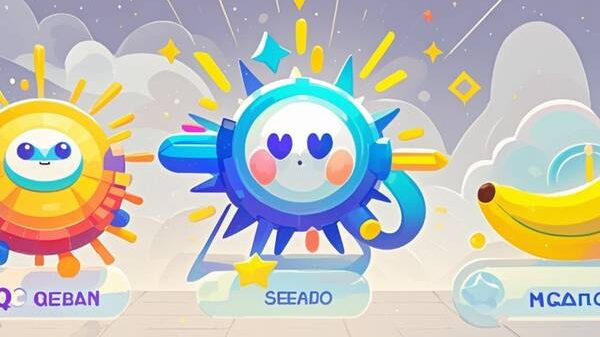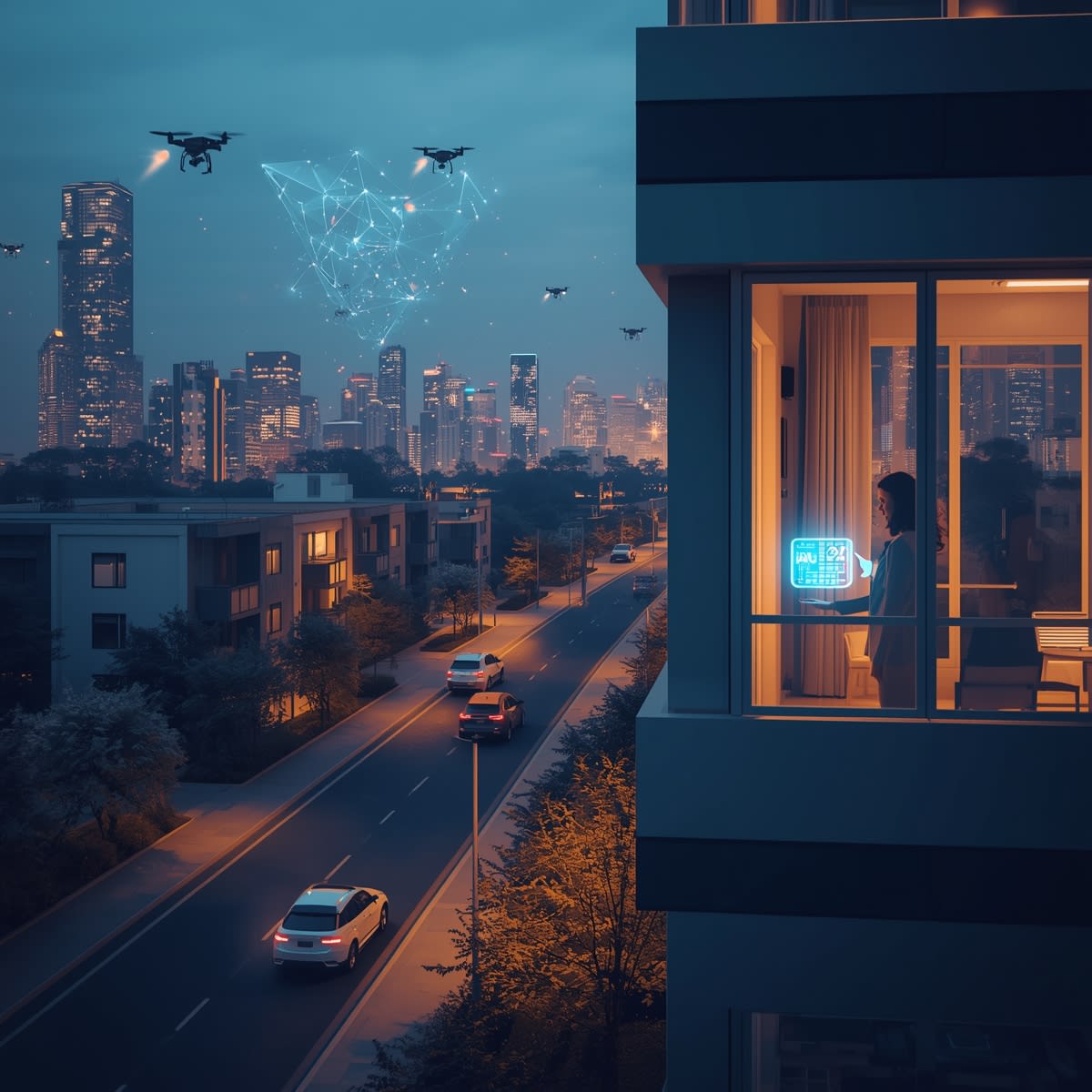In the early hours of the morning, before dawn painted the city in hues of gold, Zara awoke to the gentle hum of her AI assistant, Lumi. Unlike the jarring beeps of traditional alarms, Lumi’s soft melody matched her preferred wake-up rhythm, creating a peaceful start to her day.
“Good morning, Zara,” Lumi’s voice radiated from the bedside speaker. “Your sleep score is 87. I adjusted the room temperature at 4 a.m. because your heart rate dropped. You’ll feel more energized today.”
Zara smiled, appreciating the invisible yet significant role AI played in her daily life. Lumi transformed her mornings into a gentler experience, changing the narrative around how technology can enhance rather than disrupt human routines.
As she stepped into the kitchen, lights gradually brightened, a silent greeting to her presence. The coffee machine, seamlessly integrated with Lumi, had already brewed her favorite blend—medium roast with an almond aroma and no sugar. Tasks that once felt laborious now became moments of ease, highlighting the subtle yet profound impact of AI on daily living.
In past years, many feared that AI would replace human roles, but Zara now understood how it could uplift individuals by freeing up time, reducing stress, and enhancing safety. Over her morning coffee, she reviewed Lumi’s briefing:
- Weather: Cloudy with a chance of rain
- Appointments: Design meeting at 10
- Health: Recommended stretching routine
- News: Filtered to avoid stress-triggering stories
The last feature resonated with her most. Lumi had learned her anxieties and curated news to keep her informed without overwhelming her, presenting reality in a gentler manner.
After breakfast, she stepped outside as her autonomous shuttle arrived right on schedule at 8:10 a.m. Recognizing her through her wearable device, it greeted her by name and adjusted its environment to her preferences. Inside, passengers read or rested quietly while AI navigation ensured a smooth journey—eliminating the stress of traffic and erratic driving.
Looking out the window, Zara observed the transformed world around her. Traffic accidents had significantly decreased, noise pollution was almost nonexistent, and buildings now utilized AI energy systems that regulated power usage based on real-time demands. Intelligent streetlights adjusted their brightness according to pedestrian and cyclist presence, enhancing urban safety.
This new reality was not flawless, but it was undeniably easier and smarter, thanks to AI technologies.
Upon arriving at her office, Zara entered a workspace filled with creativity rather than chaos. As a UX designer, she had once feared that AI might replace her job, but now she collaborated with it. Luna, the design AI on her team, quickly generated prototypes, conducted user tests, and analyzed vast amounts of data far more efficiently than any human could.
However, Luna lacked one critical element: the ability to feel. Zara realized that this emotional understanding was her unique contribution.
“Good morning, Zara,” Luna greeted her as she settled into the design lab. “I analyzed user feedback for your recent layout. I’ve prepared five new variations that align with user emotions and interactions.”
Zara reviewed the options and decided to refine the second one. Luna promptly processed her request, creating a smoother, more intuitive layout. Zara added her personal touch—a warmth to the color palette and a softness to the edges, embodying the human essence that AI could not replicate.
AI wasn’t replacing her; it was elevating her capabilities.
During her lunch break in the office atrium, Zara relaxed in a therapeutic AI garden that shifted colors based on the emotions of its visitors. Today, it glowed in calming pastel blues and greens, reflecting a tranquil atmosphere.
An elderly man entered, supported by a lightweight robotic exosuit, moving steadily. He smiled at Zara and remarked, “Beautiful place, isn’t it?”
“Yes,” she replied. “I love how the garden reflects people’s feelings.”
“I remember a time when machines couldn’t even recognize our faces,” he chuckled. “Do you miss those days?”
After a moment of reflection, he responded, “Some parts, yes. But most parts? Not really. I couldn’t walk for ten years. This suit gave me my life back. AI didn’t steal anything from me—it returned what time had taken.”
His words resonated deeply with Zara, shaping her perspective as she continued her day.
Later, as she walked home, she noticed a young mother struggling with grocery bags while keeping her toddler at bay. A small spherical AI helper hovered nearby, projecting a playful light show to distract the child while gently lifting one of the heavier bags.
The mother exhaled in relief, whispering her gratitude—uncertain if she was thanking technology or something greater.
Zara smiled, believing in a future supported by compassionate technology. This was the world she envisioned: one where AI enhanced human capabilities and restored lost functions rather than replacing them.
Upon returning home, Lumi greeted her again. “Welcome back. You walked 6,000 steps today. Would you like a calming playlist?”
“Yes, Lumi,” she replied softly as music filled the room.
Watching the night settle over the city, Zara reflected on the quiet efficiency of smart lights and the drones gliding overhead. It felt peaceful in a way the past had never offered.
As she closed her eyes, Lumi gently prompted, “Zara, would you like your daily gratitude prompt?”
“Sure,” she nodded.
“What made your day easier today?”
She thought of the shuttle, Luna’s assistance, the garden, the elderly man’s regained strength, and the mother with her child. All the small moments where AI made life better—gentler, more human-like, even without a heartbeat.
“Everything,” she whispered. “Today, everything was easier.”
In that serene room, filled with soft music, Zara understood something profound: the future wasn’t frightening; the future was becoming kind.
See also Alibaba Launches Revamped Qwen Chatbot to Compete with OpenAI’s ChatGPT
Alibaba Launches Revamped Qwen Chatbot to Compete with OpenAI’s ChatGPT Generative AI Transforms Developer Roles, Boosts Workflow Efficiency by 19%
Generative AI Transforms Developer Roles, Boosts Workflow Efficiency by 19% Ranan Lachman Reveals Strategies to Future-Proof Lives Amid AI Transformation
Ranan Lachman Reveals Strategies to Future-Proof Lives Amid AI Transformation IAB Tech Lab Launches Agentic RTB Framework 1.0 to Enhance On-Device AI for Publishers
IAB Tech Lab Launches Agentic RTB Framework 1.0 to Enhance On-Device AI for Publishers Gaia Family Launches AI-Driven IVF Model with Fixed Pricing and Full Support
Gaia Family Launches AI-Driven IVF Model with Fixed Pricing and Full Support



























































